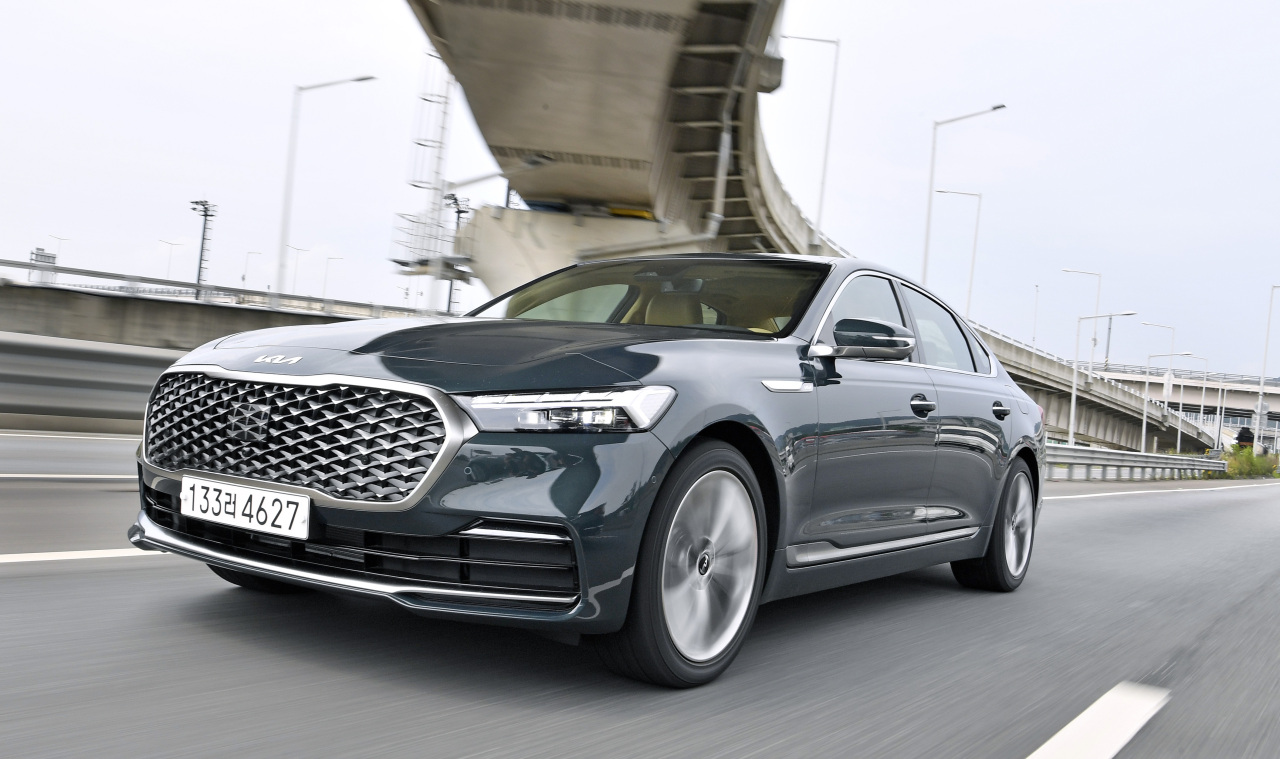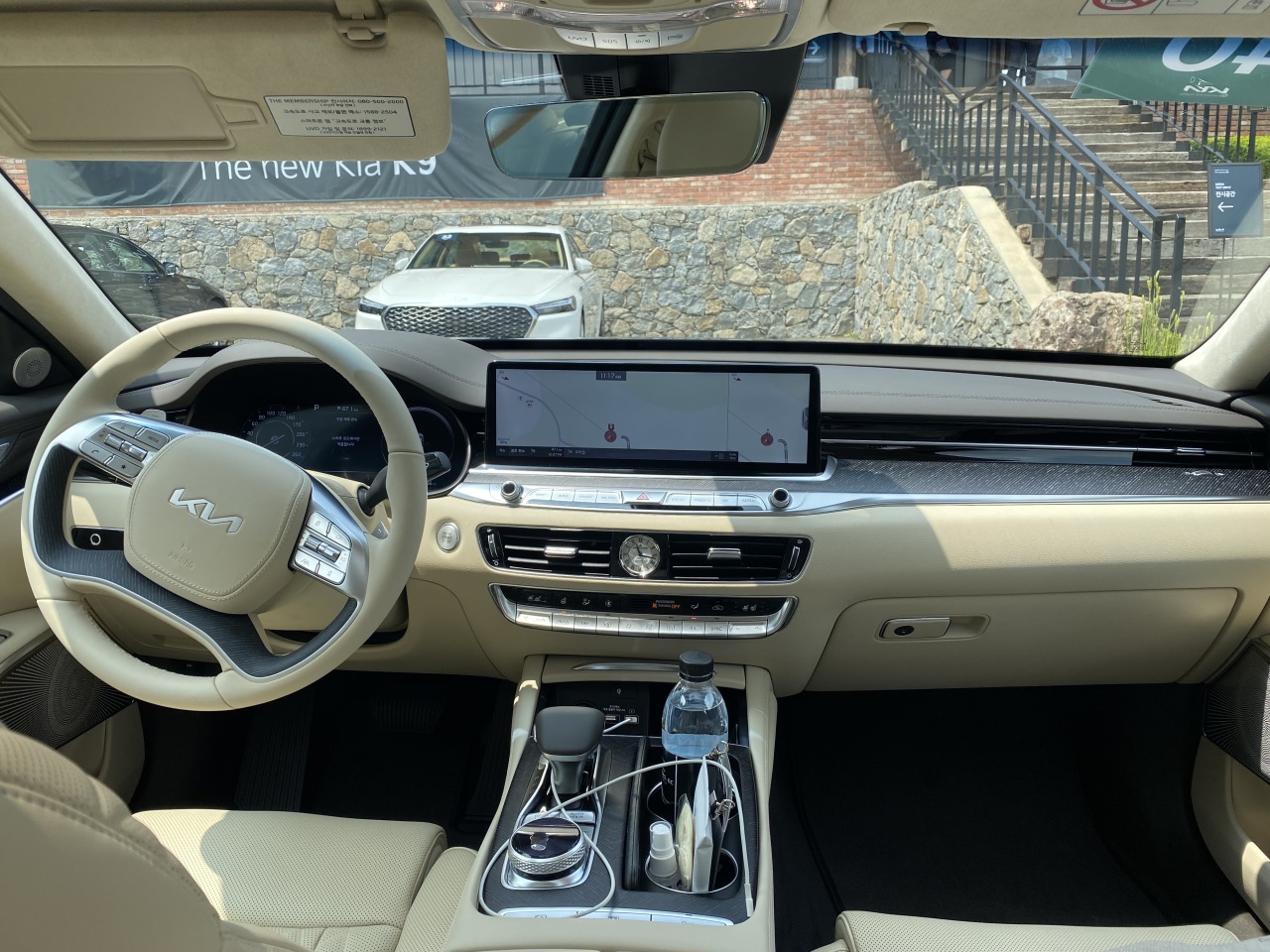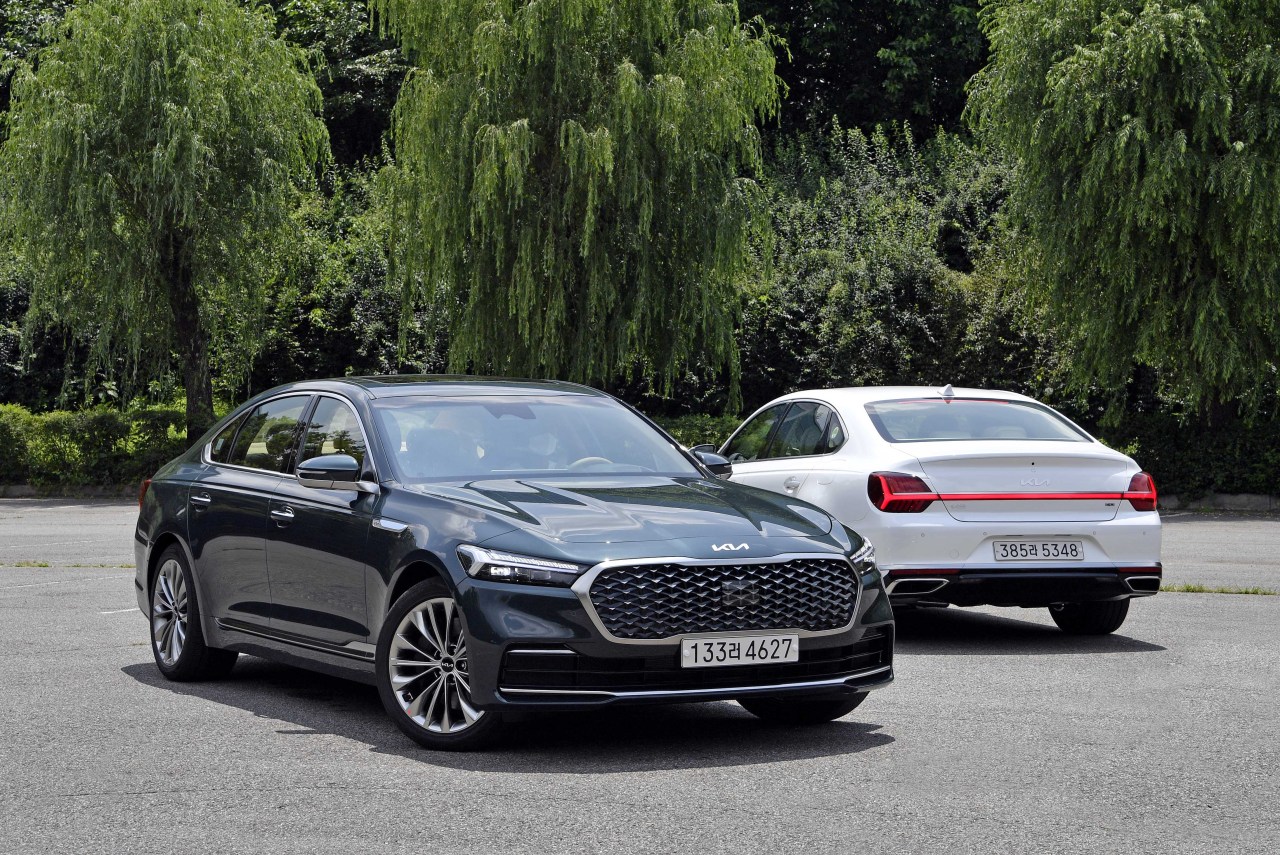 |
The Kia K9 runs on a highway during a test drive event on June 29. (Kia) |
Kia’s premium flagship sedan K9 has returned with a major technological change, showing off how driving assistance can really make a difference behind the wheel.
Often called the “car for CEOs,” the most luxurious model from Kia showed a solid performance, selling 10,878 units in 2019. But its sales dwindled to 7,831 units in 2020 as competition for the title intensified with vehicles from Genesis, the premium automotive brand of Hyundai Motor Group, namely the G80 and G90.
Aiming to reinforce its position in the premium sedan market, Kia revamped the K9 with various upgraded technologies and a sportier appearance.
The Korea Herald took the Kia K9 Gasoline Turbo for a round trip of 90 kilometers from Gwangjin-gu in Seoul to Pocheon in Gyeonggi Province.
From the front to the rear, the K9 boasts a grand presence, with its large, round radiator grille and rear lamps that cut cross the car’s rear. The premium sedan is 1,915 millimeters in width, 1,490 mm in height and has a wheelbase of 3,105 mm.
The new Kia logo is placed above the front grille and the rear lamp and is actually quite noticeable. Since Kia changed its logo earlier this year, the new K9 is the second vehicle to carry it.
Inside, the seats were covered with bright-colored, quilted Napa leather. The Ergo Motion seats, designed to automatically adjust the seats to fit different driving modes, added comfort to the ride.
 |
Inside the Kia K9 (Jo He-rim/The Korea Herald) |
The 14.5-inch touch screen and the two screens attached for rear seat passengers highlighted its connectivity. The rear seat screens are provided as an option, for 2.5 million won ($2,200).
Behind the wheel, the K9 showed how Kia took extra care to provide a luxury driving experience for the premium flagship sedan. The car was weighty, but it was particularly quiet and pressing the pedals was easy on the feet. The suspension absorbed the shock of rough roads and speed bumps very well.
The K9 comes with two powertrains, 3.8 Gasoline and 3.3 Gasoline Turbo, and each of them is offered with two trims, Platinum and Masters.
The K9 3.8 Gasoline model exerts up to 315 horsepower and a maximum torque of 40.5 kilogram-meters, while the Turbo model facilitates up to 370 horsepower and a top torque of 52 kilogram-meters.
Because the normal drive mode was such a slick driving experience, the sports mode did show a distinguishable difference, with louder engine sounds and a faster response in accelerating and braking.
 |
The new Kia K9 (Kia) |
What really came in handy was the Predictive Gear-Shift System, which takes in information on the surrounding road conditions using the front sensor and the 3D navigation to automatically change gears in advance. Kia’s PGS, which the carmaker says is the first technology of its kind, operates under the smart driving mode.
When the car headed downhill, or on a curvy road, it automatically changed gears so that it reacted faster to the driver’s braking and slowed down. With PGS turned on, the car also changed gears when a speed bump or a speed camera came up. In case of a sudden stop, the car would already be ready to slow down, adding a gentleness to the riding experience. When entering a highway, the car would also automatically turn on the sports mode.
While autonomous driving technology is being developed by all automakers, and various driving assistance programs are introduced, the PGS was a very fresh and useful driving assistance feature.
As for other convenient features, the K9 has been equipped with fingerprint recognition technology, so that the user can start the car with their fingerprint and personalize the vehicle with various driving settings. It also offers in-car payment services.
The jog dial also has an inbuilt handwriting recognition feature that enables drivers to write on it to access functions, saving them the trouble of having to type through individual buttons when holding the steering wheel.
The wide 14.5-inch screen was responsive and up to date. The monitor, however, was sometimes so big that it required longer glances to scan through the entire screen. There, the Head Up Display showing the navigation proved useful.
The car has a sunroof above the front seats, but the shade is not automatic.
The price for the new K9 starts from 56.9 million won for the 3.8 Gasoline Platinum and 63.4 million won for the 3.3 Gasoline Turbo Platinum.
By Jo He-rim (
herim@heraldcorp.com)










